5 Reasons Why You May Have Gained 5 Pounds Over the Weekend
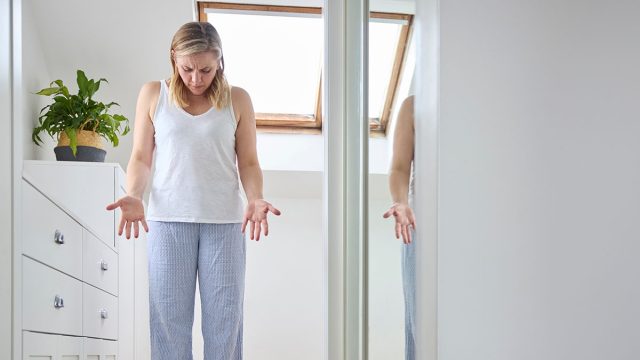
Maybe you feel extra bloated after a weekend? Or, perhaps the scale went up five pounds. Gaining weight fast can be frustrating and discouraging. However, it might mean less than you think. "Weight fluctuates ALL.THE.TIME," explains health and accountability coach Gina Wynn. This is especially the case when you are traveling. Here are key reasons why you may have gained five pounds in two days.
There Are Multiple Reasons Why the Scale Might Show That You Gained 5 Pounds
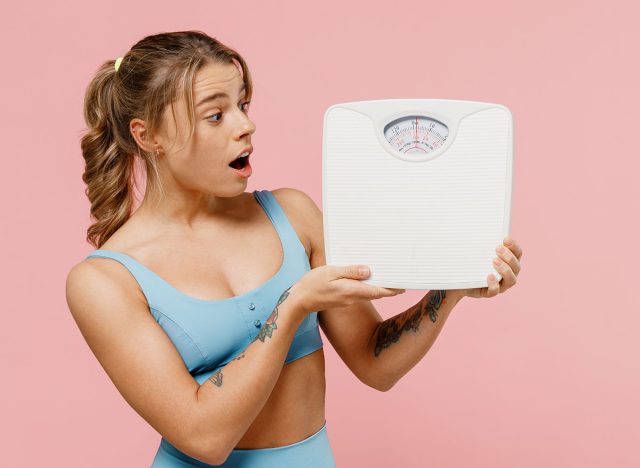
According to Gina, here is why you may have gained weight fast.
- You're out of routine
- You don't have your own kitchen
- You don't prioritize sleep
- You don't hydrate as much
- Your 💩 routine is out of whack
Unless You Ate 17,500 Calories, You Didn't Gain 5 Pounds of Fat
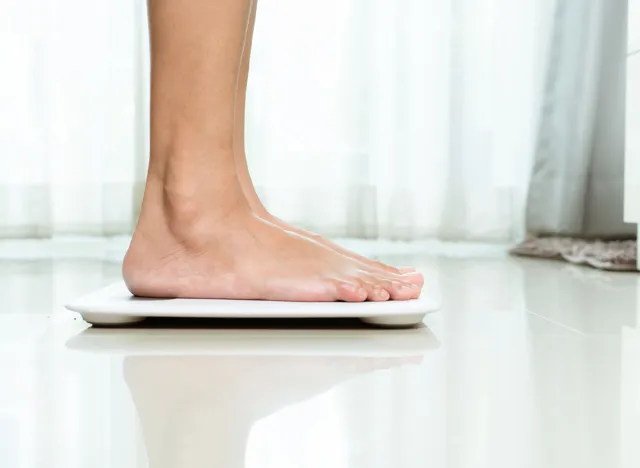
"So, did I really gain 5 pounds of fat over the weekend?? NOPE," she continues. "I would have had to eat 17,500 more calories to gain 5 pounds of fat."
RELATED: 10 Signs You Aren't Consuming Enough Calories
It's Likely Water Weight
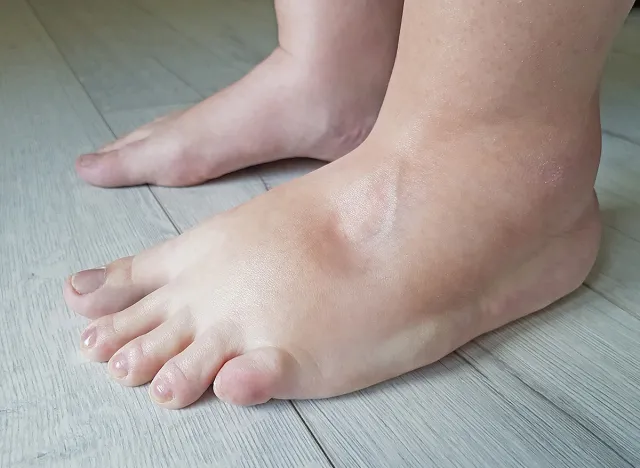
While the scale may have gone up, it's not what you think. "The extra five pounds reflected on the scale was water weight and 💩," she says.
Hydrate, Eat Healthy, Exercise
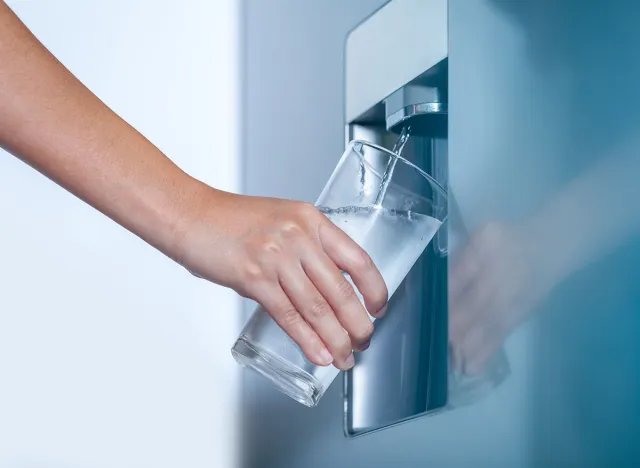
Gina makes a few suggestions to get your body back into normal rhythm. "So yesterday, I made sure to hydrate, focus on whole food nutrition, and a 30-minute workout," she says. "Guess what? I'm back to my normal weight."
Weight Is Not an Accurate Measure of Fat Loss
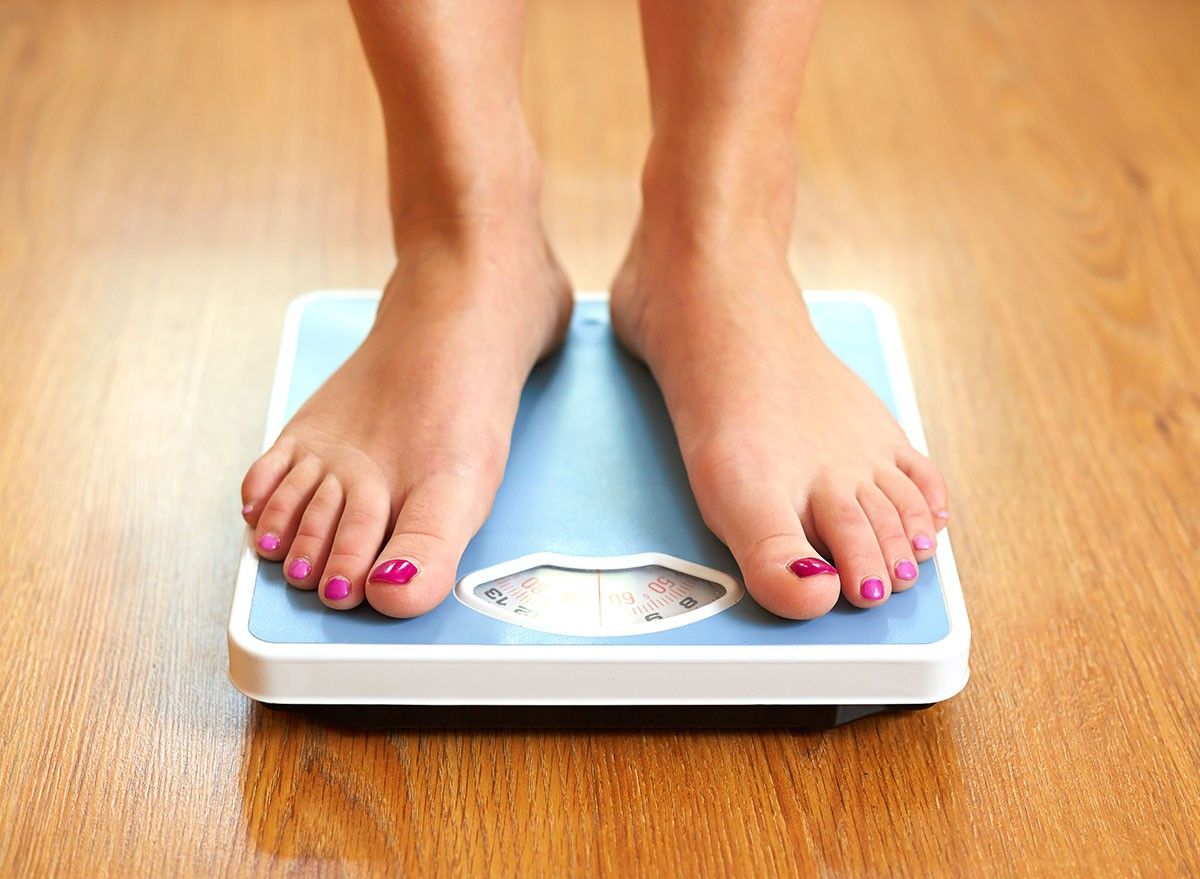
"All this to say—don't freak out if your weight fluctuates. It's not an accurate measurement of fat loss," she points out.
She Never Weighs Herself

*Disclaimer- I never weigh myself. I did this as an experiment since I was traveling. I measure my progress with how I feel, my clothes, and how heavy I'm lifting," she says.
RELATED: 20 Proven Tips to Lose Weight with the 12-3-30 Walking Method
Another Expert Agrees That the Scale Isn't Always Accurate

Chris McMahon, a nutrition and fitness coach, agrees that the scale isn't always an accurate portrayal of your changing body. "Even if you're working out, you'll see the scale go up and things of that nature because you're retaining water and glycogen, which is an energy form that we can keep in our muscles," he says.
💪🔥Body Booster: Instead of weighing yourself, try gauging your progress by how your clothes feel on.




